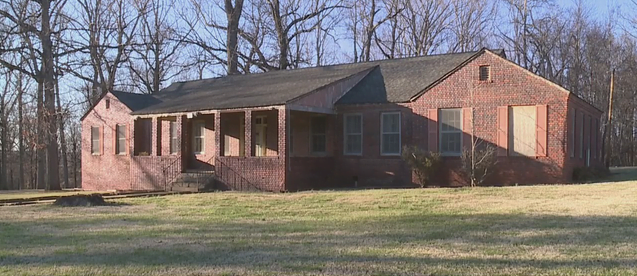Corporation looks to continue legacy at site of former Black orphanage in Forsyth County
FORSYTH COUNTY, N.C. (WGHP) — In 1928, what was once known as the Colored Baptist Orphanage Home was moved to northern Forsyth County.
Under a new name, the Memorial Industrial School, the orphanage included a farm, dormitories, an administration building and other facilities.
The new facilities were made possible by contributions from civic organizations as well as the Duke foundation and the Reynolds and Gray families of Winston-Salem. The orphanage was located on 425 acres, according to the city of Winston-Salem.
In 1939, a 2-year-old boy named English Bradshaw and his sister arrived at the complex.
“This land here is perpetuated in righteousness,” Bradshaw said, 51 years after the school’s closure in 1971.
As he explains, he and his sister spent much of their childhood thinking school staff members were their biological parents.
“Lived in the baby cottage up until we was 10 years old thinking that Mrs. Pounds was our mother and Mr. Peay – who was the superintendent – was our parent,” Bradshaw said.
Children at the school were given academic training on-site but also gained agricultural skills on the campus farm.
“We had to get up at 4:30 and go down to the farm,” Bradshaw recalled.
As he explained, the boys were given a choice to work on the farm or around the campus buildings cleaning up the grounds.
Bradshaw said they would perform tasks such as milking cows and feeding chickens all before 7 a.m., then come back to eat and head off to school.
The orphans would also play several sports on the same grounds they were tasked with maintaining.
“We had a bunch of white boys that used to come out here and play us. Rural Hall used to come out here and play us…they used to get their a—s beat all the time,” Bradshaw joked.
While there were good times, Bradshaw said there was a heinous side to the school.
“Beatings and abuse. Physical abuse and other types of abuse,” he detailed.
By his mid-teens, Bradshaw says he left the orphanage before furthering his education at the University of Hawaii, Harvard Graduate School of Education, Harvard University John F. Kennedy School of Government and Amsterdam University.
However, about 70 years after he left, Bradshaw has returned to the site, saying “the history of it is gone.”
Today, the buildings where the children slept and learned still stand. The blackboards they used for lessons are still on the walls. The hall where they would spend holidays remains intact. Yet the grounds surrounding those buildings have been largely transformed. The site is the location of Horizons Park, and a portion of the property is Horizons Residential Care Center.
Near some of the buildings, people can be seen playing disc golf and other recreational activities. Most are completely unaware of the previous purpose of the land.
“I say, ‘do you know what this used to be?’ Nobody,” Bradshaw said.
Bradshaw said he’s started 21 charter schools and written 14 books, including “Suffer the Little Children: A Biographical History of Child Care for Colored Children in the American South,” which details the history of the Memorial Industrial School.
While the book puts the story of the school into words, Bradshaw’s latest mission looks to breathe new life into the grounds all while giving it a new and improved purpose.
“When I look around here, this is just like home to me,” he said. “This is my home.”
Bradshaw currently serves as the board chair for the Memorial Industrial Community Development Corporation, which looks to improve quality of life for the people of Forsyth County “by addressing social determinants of health and the impact of food and nutrition on poverty while preserving the historical and rural character of the area.”
As Bradshaw explains, that includes housing people in need and also providing food for people living in food deserts.
“Sustainability, education and also providing health,” he said.
The corporation is currently accepting comments and ideas for plans to renovate the property in addition to looking for donations to help it accomplish those goals.
“This land gave me my life,” Bradshaw said, through tears. “And I want to see what I can do to let it be able to continue to give other people their lives.”
For more information, click here.





